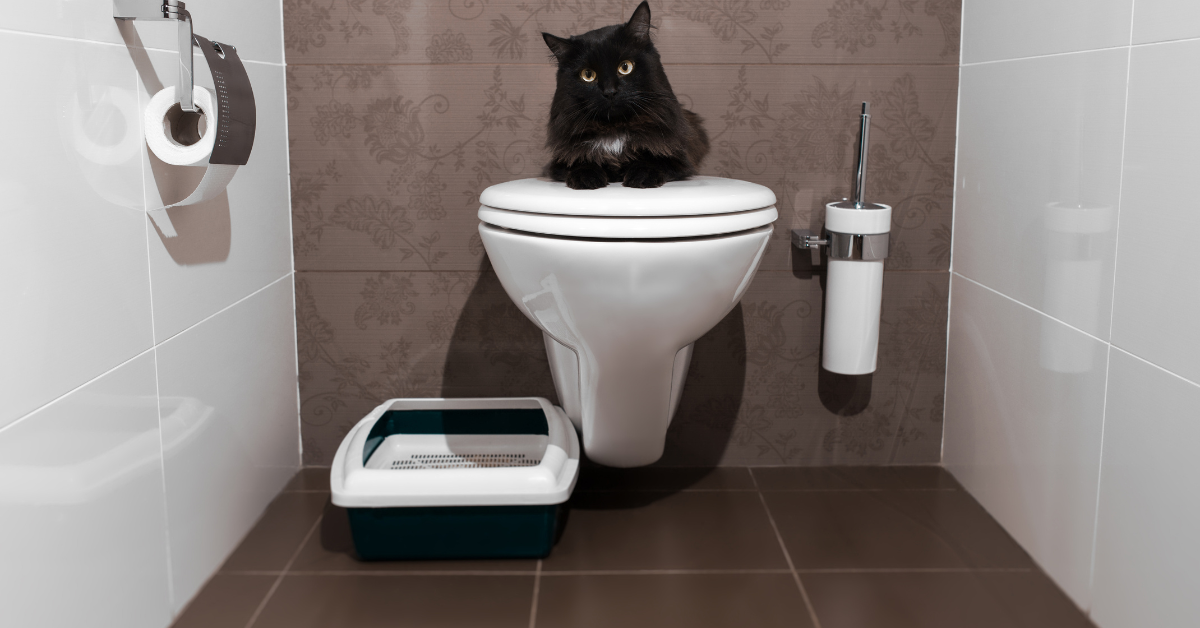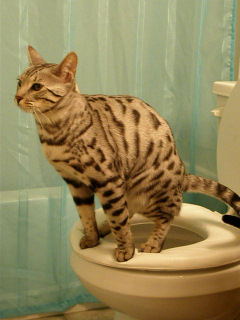Why You Should Never Flush Cat Poop Down Your Toilet - Critical Information
Why You Should Never Flush Cat Poop Down Your Toilet - Critical Information
Blog Article
Listed here down the page you can find more incredibly good information in relation to How to Dispose of Cat Poop and Litter Without Plastic Bags.

Intro
As pet cat proprietors, it's vital to be mindful of just how we deal with our feline friends' waste. While it may appear practical to purge cat poop down the commode, this practice can have damaging consequences for both the setting and human health and wellness.
Ecological Impact
Purging feline poop presents hazardous microorganisms and parasites into the water system, posturing a considerable risk to water environments. These pollutants can negatively affect marine life and concession water quality.
Health Risks
In addition to ecological problems, purging cat waste can additionally posture health and wellness risks to humans. Feline feces may consist of Toxoplasma gondii, a parasite that can trigger toxoplasmosis-- a possibly serious disease, specifically for pregnant ladies and people with damaged immune systems.
Alternatives to Flushing
Thankfully, there are more secure and more liable means to deal with feline poop. Take into consideration the complying with options:
1. Scoop and Dispose in Trash
One of the most usual approach of getting rid of pet cat poop is to scoop it right into a biodegradable bag and throw it in the garbage. Make sure to utilize a devoted litter inside story and throw away the waste immediately.
2. Use Biodegradable Litter
Choose biodegradable feline trash made from products such as corn or wheat. These trashes are environmentally friendly and can be securely disposed of in the trash.
3. Hide in the Yard
If you have a backyard, think about hiding feline waste in a designated area far from veggie gardens and water resources. Make sure to dig deep sufficient to stop contamination of groundwater.
4. Install a Pet Waste Disposal System
Invest in a family pet waste disposal system specifically designed for cat waste. These systems use enzymes to break down the waste, reducing smell and environmental effect.
Conclusion
Responsible family pet possession prolongs beyond giving food and shelter-- it additionally involves correct waste management. By avoiding purging feline poop down the commode and choosing different disposal methods, we can reduce our ecological footprint and safeguard human health.
Why You Should Never Flush Cat Poop Down the Toilet
A rose by any other name might smell as sweet, but not all poop is created equal. Toilets, and our sewage systems, are designed for human excrement, not animal waste. It might seem like it couldn’t hurt to toss cat feces into the loo, but it’s not a good idea to flush cat poop in the toilet.
First and foremost, assuming your cat uses a litter box, any waste is going to have litter on it. And even the smallest amount of litter can wreak havoc on plumbing.
Over time, small amounts build up, filling up your septic system. Most litter sold today is clumping; it is made from a type of clay that hardens when it gets wet. Ever tried to scrape old clumps from the bottom of a litter box? You know just how cement-hard it can get!
Now imagine just a small clump of that stuck in your pipes. A simple de-clogger like Drano isn’t going to cut it. And that means it’s going to cost you big time to fix it.
Parasitic Contamination
Believe it or not, your healthy kitty may be harboring a nasty parasite. Only cats excrete Toxoplasma in their feces. Yet it rarely causes serious health issues in the cats that are infected. Most people will be fine too if infected. Only pregnant women and people with compromised immune systems are at risk. (If you’ve ever heard how women who are expecting are excused from litter cleaning duty, Toxoplasma is why.)
But other animals may have a problem if infected with the parasite. And human water treatment systems aren’t designed to handle it. As a result, the systems don’t remove the parasite before discharging wastewater into local waterways. Fish, shellfish, and other marine life — otters in particular — are susceptible to toxoplasma. If exposed, most will end up with brain damage and many will die.
Depending on the species of fish, they may end up on someone’s fish hook and, ultimately on someone’s dinner plate. If that someone has a chronic illness, they’re at risk.
Skip the Toilet Training
We know there are folks out there who like to toilet train their cats. And we give them props, it takes a lot of work. But thanks to the toxoplasma, it’s not a good idea.

I stumbled upon that piece on How to Dispose of Cat Poop and Litter Without Plastic Bags when surfing the web. Enjoyed our article? Please share it. Let someone else discover it. We recognize the value of reading our article about Don’t flush cat feces down the toilet.
Book Service Report this page